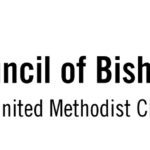Recently my wife and I had an extremely large credit card come due. I knew that it was going to be big, but it was way bigger than I expected. My policy with credit cards is that we pay them off every month, no matter what. That was true with this bill. What caught my attention was how long it would take to pay off this debt if we just paid the minimum each month. It would have taken over nine years to pay off the card!
It seems to me that in our society we have been taught to expect to be in debt. It is amazing how easy it is to get into debt! What are some of the ways that we can do this? College can be one of the quickest ways. I know many people who have a long-term college debt that they are paying off. Cars are another way to find ourselves owing money. Houses can be a big one! There is a myriad of other ways that we can go into debt, with some, like credit cards and medical bills, sneaking up on us!
Why do we usually go into debt? My best explanation is that we are either responding to an emergency, or we want something now that we can’t afford to completely pay for right now. I feel fortunate that I didn’t go into debt for either my bachelor’s or master’s degree. Health issues, however, is another question. I was in my twenties when I had cancer. To be honest, it is a mystery to me how all of the medical bills were paid for. I suspect that there is an explanation, but I don’t know what it is. One day new (and old!) bills quit being mailed to us. The rest of our personal debt can be summed up with cars, trucks, a travel trailer, land, and houses (over a thirty-two year period).
We lived in parsonages for twenty years, which was both a blessing and a challenge. We actually reached a point, for quite a long time, where we were completely debt free. I truly enjoyed being in that position! The problem was that as we looked in to the distant future towards retirement, we wanted to have a house that was paid off. We knew that we were getting into house buying way later than most people, and the thought of having a mortgage was daunting. Being over-achievers, at one point we found ourselves owning three houses. That is not the way to get out of debt!
Retirement is no longer in the fuzzy distant future. Although I could still pastor for nineteen more years before mandatory retirement, realistically (hopefully!) retirement is a decade or less ahead of me. That still sounds like a long time until we figure out all that needs to be done financially. This is a big part of the reason that we are selling our Alaska house. We love that house, but it is no longer where we want to retire. Financially, we can’t get out of debt before retirement owning (along with the banks) two houses. We are also in the process of selling our Sierra Vista house and moving to Sahuarita, which is much more central for the South District. Although none of the houses on our house-search list were cheap, we are under contract with the cheapest house that made our list. During the intensity of the house search, we stayed aware of what would happen to our finances if we bought one of the more expensive houses on our list. Although the more expensive houses on our list were bigger and fancier than what we are buying, we did not believe that we would be any happier in them.
Debt can be a very useful tool, while at the same time it can become a draining burden. I’m once again at that point in life where I want to experience the financial freedom of being entirely debt free. We will not get there accidently. We need to be very intentional about our choices, sometimes not buying things that we want, and other times selling things that we would like to keep. I believe that the freedom that goes along with being debt-free allows us to reduce some of the stress in our lives, and to be more generous followers of Jesus.
Debt is not just an issue in our personal lives, but also in our churches. As a pastor, I have both guided churches into deeper debt; and also helped churches to completely get out of debt. Land and buildings tend to be the biggest reasons that churches go into debt, though there can be many other reasons. This can include buying equipment, repairing structures, remodeling, and buying vehicles. How does a church’s debt affect their ministry? Their ministry might be enhanced by having more tools for doing ministry. The risk, though, is having ministry strangled by the debt. This is most often seen when there is a decline in giving while the demands of servicing the debt stays constant. Balloon payments can add to the challenges and stress of having debt.
My best advice to both individuals and churches is to be extremely cautious about taking on financial debt. When debt is deemed to be an acceptable risk, don’t go any deeper than what is absolutely necessary. Then I recommend getting out of debt as fast as is possible, which will likely require some sacrifices.
Your brother in Christ, Mark




